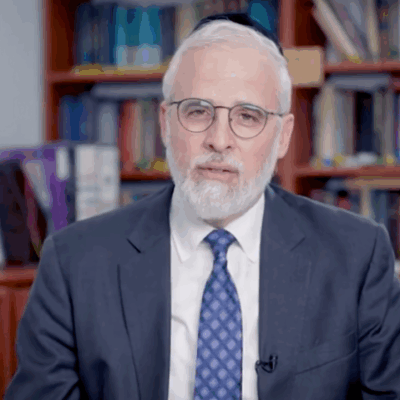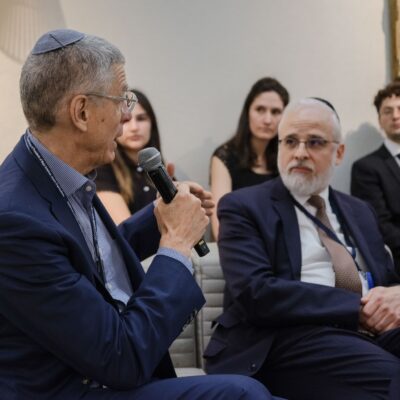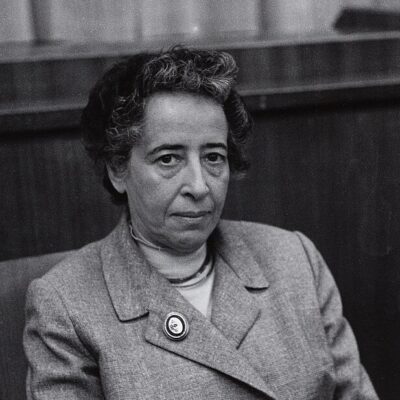DOCTORS WANTED
With funding from plastics magnate Sami Sagol, Ben-Gurion University launches med school geared toward new immigrants
Unlike the rest of Israeli programs, which run for six years for those without a bachelor's, this four-year initiative is aimed at those who have already earned a first degree

David Vaaknin for The Washington Post/Getty images
A bridge to Ben-Gurion University in Beersheva.
As Israel faces a growing doctor shortage with the looming retirement of 1990s-era Russian immigrants, the newly named Sagol Medical School for International Health — a partnership between Ben-Gurion University of the Negev and the Sagol Network — has launched a four-year medical school program focused on advanced technologies, public health and future-ready medical education.
Unlike other medical schools in Israel, which are six-year programs for students without bachelor’s degrees, this shorter program is meant for students who have completed their bachelor’s degrees, making it more suitable for new immigrants, though it is open to all Israeli citizens, its director, professor Alan Jotkowitz, told eJewishPhilanthropy.
The creation of the school comes in the wake of the Israeli government’s decision, in 2022, to close Israeli medical school programs for international students to prioritize the training of domestic doctors to address the growing physician shortage. There are currently 160 students enrolled in the new program.
The collaboration between Ben-Gurion University, which is located in the southern Israeli city of Beersheva, and the Sagol Network emerged from a mutual commitment to shaping a worldwide academic and medical framework that views health as a continually advancing discipline, Jotkowitz said. The program will emphasize a comprehensive global health perspective, the importance of preventive medicine and the integration of state-of-the-art technologies and the strategic use of artificial intelligence, already used in radiology and pathology, into other areas of medicine, he said.
The school will also work to strengthen the medical services in southern Israel, said Jotkowitz, who noted that Israel’s shortage of doctors can be most felt in Israel’s periphery, particularly in the Negev.
The “gracious” donation from the Sagol Network (Ben-Gurion University would not disclose the full amount) will allow the medical school to enrich its curriculum in preventive medicine and global health, develop new programs that emphasize small-group learning and integrate artificial intelligence into their teaching, he said. For instance, he added, AI can be used to create individual curriculum for students who study at different paces
“We all know that what happens in one country impacts another. What happens in China affects Israel (and other countries) and has global implications in health worldwide,” said Jotkowitz. “We know that it is more cost effective to prevent disease than to treat it. There is a pyramid of medical care, with patients in hospital on the top, but most patients do not get to the hospital. Most health care happens in the ‘base.’ We will teach students how to prevent chronic diseases rather than just treat them. This is the dream over the next few years. The goal is to train medical students, particularly in Israel’s south. Because of the doctor shortage we want students who will learn, work and stay in Israel.”
The Sagol Network works with top institutions in Israel and internationally to support pioneering research, preventive health strategies, personalized medicine and the education of a new wave of socially responsible, globally aware health-care professionals.
In a statement, Israeli plastics magnate and philanthropist Sami Sagol noted that the Sagol Medical School for International Health is the latest addition to the Sagol Network ecosystem of leading national and international universities and medical centers whose mission it is to make Israel a global hub for brain and health research.
“I hope this school will help realize David Ben-Gurion’s vision of turning the Negev into the ‘Israeli Oxford’ and contribute to the region’s development and prosperity,” Sagol said.

 Add EJP on Google
Add EJP on Google








